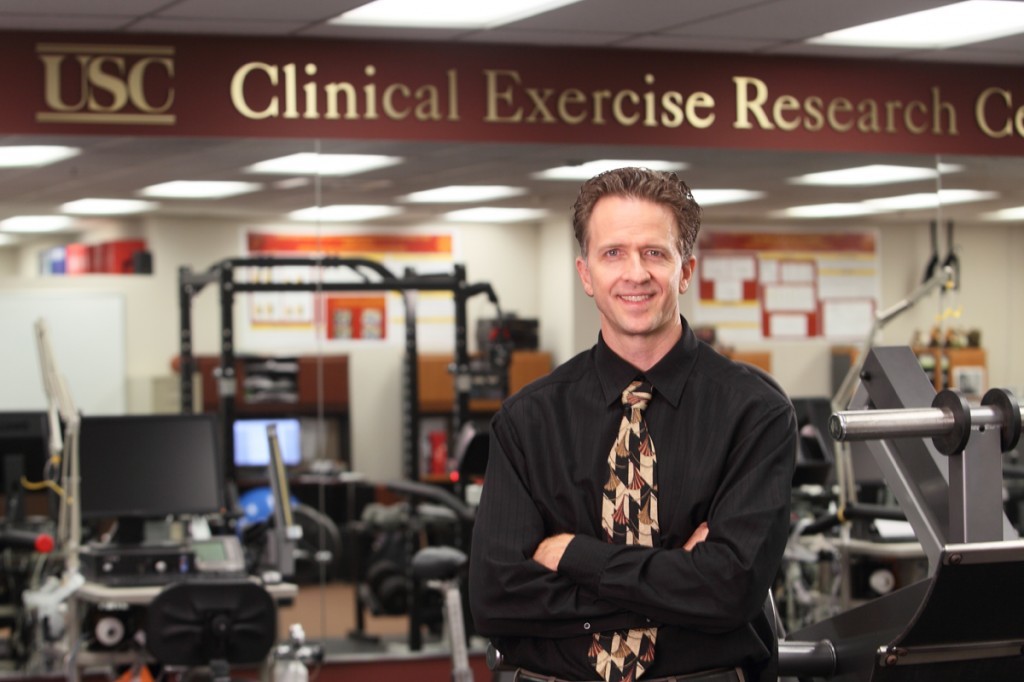Nearly everyone who participates in sports, whether professional or recreational, knows about the knee's anterior cruciate ligament (ACL) and its risk of breakage under the strains of vigorous athletics. While the injury can interrupt or even end careers for the pros, for weekend warriors a blown ACL can still seriously interfere with exercise and an active lifestyle.
Surgical repair of the ACL is common and on the whole successful, but recovery is typically a long and difficult road, explained investigator Ido Badash, a third-year medical student at the Keck School of Medicine of USC. Months of physical therapy and exercise (not to mention ice and painkillers) are needed before ACL patients can once again rely with confidence on their newly wired knee. But recovery is not always 100%.
"Patients don't always get back to their pre-injury levels of performance, knee stability, lean muscle mass and strength," said Badash. "The trauma of the surgical repair can also raise the long term chances of developing arthritis in the affected joint years down the line."
These issues are more than a matter of achy knees or a diminished vertical leap in a playground jump-shot. Incomplete recovery of leg strength and knee function can also lead to a lifelong decrease in exercise, a big potential negative for both physical and mental health.
Badash and a team of investigators wanted to explore ways to improve outcomes for ACL patients, by preserving muscle mass and strength after surgery. So, with support from the SC CTSI, the researchers piloted an investigation into the potential of the muscle-building hormone testosterone to improve outcomes, said Brian W. Wu, MD, Ph.D., a psychiatry resident in the Department of Psychiatry and Behavioral Sciences at the Keck School of Medicine of USC. Wu focused on sports medicine before specializing in psychiatry.

They hypothesized that testosterone injections given to male ACL patients in an eight-week perioperative period spanning the surgery could preserve muscle mass and strength, and lead to faster and more complete recovery. Badash and Wu developed the pilot under the direction of E. Todd Schroeder, Ph.D., Associate Professor of Clinical Physical Therapy in the Herman Ostrow School of Dentistry of USC, whose research interests include the relationships of strength to health, and who has previously studied testosterone. Also on the team was statistician Christianne Lane, Ph.D., of Keck School of Medicine, an SC CTSI's research consultants.
The study showed encouraging increases in lean muscle mass for the men who received the testosterone, said Badash. (The study did not include female patients, due to the obvious concerns about the effects of a male hormone.) Although they used relatively conservative dosages in the pilot, some encouraging strength gains were noted—but Wu and Badash said more research is needed to determine if the hormone injections can significantly improve outcomes.
Badash and Wu noted the SC CTSI's support in enabling the pilot and opening up this line of inquiry.
"It was fortuitous that we were introduced to the SC CTSI relatively early," said Wu. "They provided a $30,000 grant that got the project started." In addition to Lane's input on statistics and study design, the team used the SC CTSI-run REDcap database system to manage and analyze their study data. "The REDCap system was pretty vital," said Wu, "and the assistance from the SC CTSI helped us execute the project a lot earlier."
The investigators published their findings in the Orthopaedic Journal of Sports Medicine (July 2017.) They also presented their findings at a recent meeting of the American Orthopaedic Society for Sports Medicine.
Going forward, Badash and Wu hope to write two additional papers examining longer-term outcomes for the patients with testosterone supplementation. And they hope to mount future studies using higher dosages, longer periods of supplementation, and greatly increased sample sizes, perhaps enabled by a multi-institutional study.
Ultimately, Badash added, testosterone therapy might prove of value in recovery from other orthopaedic surgeries that impact strength and muscle mass, such as those of the hips and shoulders.
